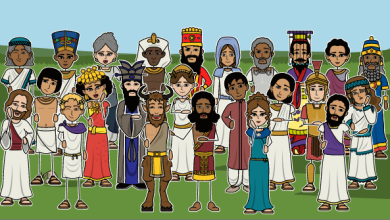The distinction between civilization and culture is fundamental in the study of human societies and their development. Although these terms are often used interchangeably in casual conversation, they refer to distinct concepts within the realm of social sciences and humanities.
Civilization refers to an advanced stage of human social development and organization, characterized by complex institutions, sophisticated technologies, and a high degree of economic and social stratification. It typically denotes the overall structure of a society, including its political, economic, and social systems. A civilization is marked by the establishment of cities, the development of writing systems, the creation of centralized governance, and advancements in various domains such as science, art, and architecture. The term often implies a certain level of material and cultural achievements that set a society apart from what might be considered less developed or more primitive stages of social organization.
Culture, on the other hand, pertains to the shared values, beliefs, practices, traditions, and material artifacts of a group of people. It encompasses the way of life of a particular society or community and includes aspects such as language, religion, art, cuisine, and social norms. Culture is more fluid and can vary widely even within a single civilization. It is the expression of a society’s way of life and can be seen in everyday practices, rituals, and artistic endeavors. Unlike civilization, which often has a more formal and structured connotation, culture is inherently more diverse and subjective.
To illustrate the difference, consider the following example. The Ancient Egyptian civilization is renowned for its monumental achievements, including the construction of the pyramids, the development of a writing system known as hieroglyphics, and the establishment of a centralized monarchy. These elements reflect the advanced state of their civilization. However, within this broad civilization, the culture of the ancient Egyptians encompassed their religious practices, artistic expressions such as tomb paintings and sculptures, their social customs, and their dietary habits. These cultural aspects were integral to their daily lives and their identity as a people but are separate from the larger framework of their civilization.
In a more contemporary context, the concept of civilization can be observed in the modern world through the development of global networks, advanced technologies, and complex political and economic systems. Modern civilizations are characterized by global interconnectedness, advanced infrastructure, and widespread access to information and technology. Within these civilizations, cultures can vary significantly. For instance, the culture of Japan is distinct from that of Brazil despite both countries being part of the broader modern global civilization. Japanese culture includes unique elements such as traditional tea ceremonies, specific culinary practices, and particular artistic styles, while Brazilian culture is known for its vibrant music, dance forms like samba, and diverse culinary traditions.
The interplay between civilization and culture is intricate and often reciprocal. Civilizations provide the framework within which cultures can develop and evolve. Conversely, the cultural practices of a society can influence and shape the direction and character of its civilization. The historical record shows numerous instances where cultural shifts have had profound effects on the trajectory of civilizations. The Renaissance, for example, was a cultural movement that led to significant changes in art, science, and philosophy and contributed to the development of Western civilization in profound ways.
In summary, while civilization and culture are interconnected, they represent different aspects of human social existence. Civilization refers to the broad and often formalized structures and advancements of a society, while culture encompasses the shared practices, values, and traditions that characterize the way of life within that society. Understanding these distinctions helps in appreciating the complexity of human societies and the diverse ways in which they express their identity and progress.




